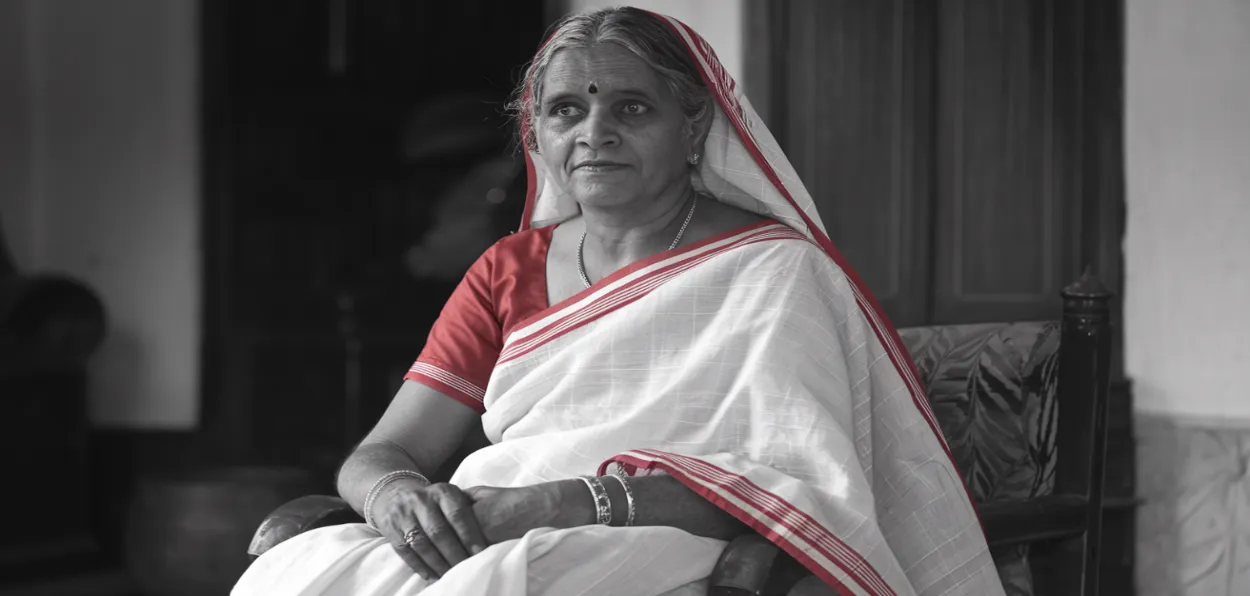
Saquib Salim
An illiterate woman, the mother of 12 children, cursed herself for not being able to read religious books. She belonged to a ‘cultured’ family and therefore not supposed to desire reading or writing. It was 19th century Bengal. The woman Rassundari Devi, born in 1810, became the first Bengali woman to write an autobiography.
In her autobiography, Rassundari Devi writes that literate women were considered bad by society. Any young girl could be punished for possessing a pen or a paper.
However, Rassundari Devi's desire to read was strong enough to make her rebel and risk social outrage.
Rassundari Devi tore a page from a religious book of her husband; and stole writing material from her son's desk. She hid these things in her kitchen. She matched the words on the leaf, to her son's notebook.
She did all this in secrecy with nobody in her home spotting her studying.
The present generation may find this way of learning weird. But, in 19th century Bengal it was a crime to learn reading for a woman. Later on, Rassundari Devi recorded her struggle in an autobiography “Amar Jiban” (My Life);
“I used to be impatient to listen to the Ramayana recitation, but those were different times. Women had no freedom. They could not take any decision on their own. Just like any caged bird, women were imprisoned too.
I could read (religious books) a little bit. But I did not have free time and more importantly, the fear of getting caught and punished was always looming over me. Later on, I decided that I would read “Chetna Bhagat” (a religious book) in the morning when all three of my sisters-in-law were busy in religious rituals. Still, I had to read while I hid in some nook and corner of the house as one of my maidservants kept the vigil.”
Amar Jiban was first published in 1876. It was historic as well as revolutionary that a woman’s autobiography was published in Bengali. Tarabai Shinde’s Stri Purush Talana (1882) in which men and women were compared it caused ripples in the society of those times, Pandita Ramabai Saraswati’s The High-Caste Hindu Woman (1887), was published much later.
The first part of Rassundari Devi’s Amar Jiban was written in 1868. She was 88 when she wrote the second part of her autobiography. It was published in 1906.
Jyotirindranath Tagore wrote the foreword to the second edition of Amar Jiban. A famous author himself and elder brother of Rabindranath Tagore, he wrote;
“I started reading “Amar Jiban” with an excitement. I had decided that I would mark important and interesting sentences with a pencil. While reading, I realised that the whole book had been marked with a pencil. Her life story startles us. Her writings are so simple, honest, and powerful that it is impossible to put down the book without completing it.”
Amar Jiban is a valuable document for understanding the condition of women in 19th-century Bengal. Women worked with ghoonghat (veil) even in kitchens. The voice had to be lowered while talking to maidservants so that no male servant or family member could hear them. Women lived a caged life like a prisoner.
Centuries of patriarchal domination conditioned women into submitting in this jail as their rightful duty. She writes about an incident when she was 25 and her son was learning horse riding;
“There was a horse ‘Jay Hari’ in our house. One day it was brought in front of the woman’s courtyard so that I could watch my son ride. I heard someone saying that it was the horse of my husband. It struck me suddenly that I couldn’t go in front of this horse. It would have been shameful if my husband’s horse saw me, so I hid inside the house.”
Imagine, women had to hide from a horse belonging to their husbands. Purdah (veil) was engraved in the psychology of Bengali women.
ALSO READ: GI Tagged Kashmir saffron output may fall due to dry weather
The progress women have made and are still making is on the foundations laid by our foremothers like Rassundari Devi.
